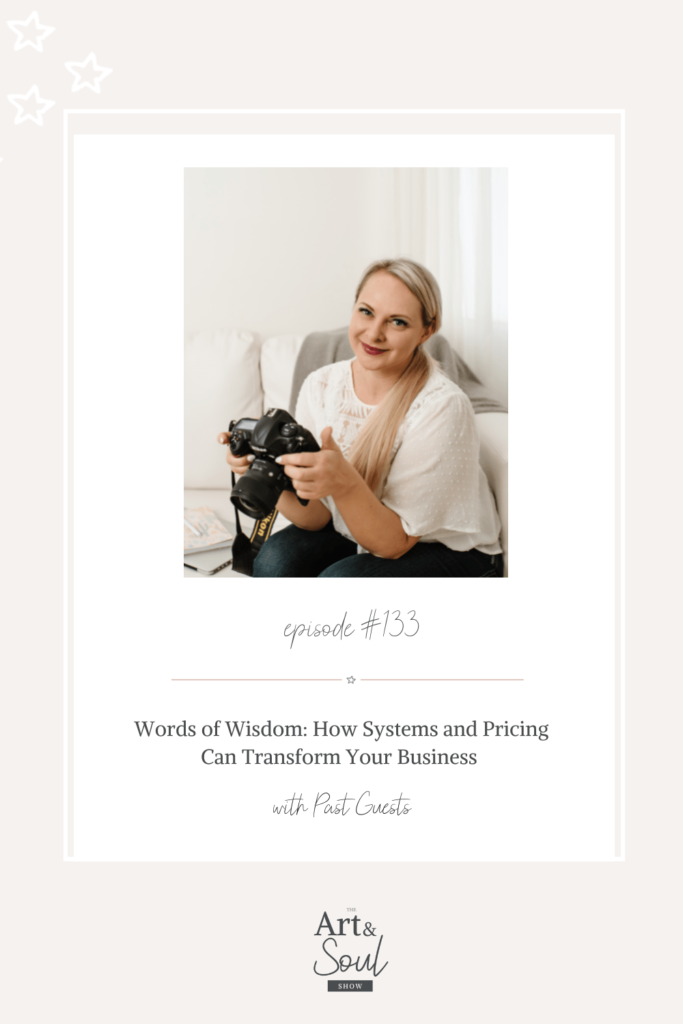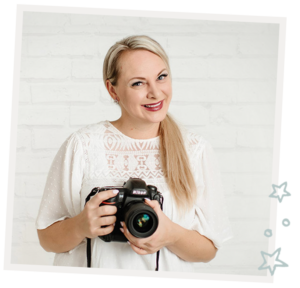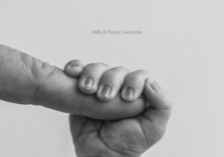Words of Wisdom: How Systems and Pricing Can Transform Your Business with Past Guests
Whether you’re starting out as a photographer or you’re several years in and looking to grow your business, creating systems that work for you and setting prices that are sustainable can be transformative to your business.

Today’s episode is a compilation of some of my favorite pieces of advice on systems, pricing, and profitability from previous guests Ang McCabe, Annemie Tonken, Colie James, Jane Goodrich, Jenna Henderson and Julie Christie.
They’re sharing common mistakes when it comes to setting up your systems, how to handle raising prices and why profitability is more important than your specific “price”, and mindset shifts that will help you be successful.
And some of these guests will be our incredible teachers at the upcoming virtual 2022 Online Business Retreat for portrait photographers! If you’re ready to elevate your business through marketing, sales, systems, pricing, and more, you can register here!
What’s in this episode:
- How learning the “business” side of a photography business can change your life (Ang McCabe) [00:00]
- The biggest mistake most photographers make when setting up their systems (Colie James and Annemie Tonken) [02:00] [05:49]
- Where to start with your CRM system (Colie James) [03:48]
- Why a simple system, instead of overcomplicating your process, is more sustainable for your business (Annemie Tonken) [06:55]
- How to keep up your confidence when changing your pricing (Jane Goodrich) [08:08]
- How to define your market position instead of comparing yourself to other photographers when starting out (Julie Christie) [09:23]
- Why price doesn’t matter nearly as much as profit (Julie Christie) [12:30]
- What mindset shifts you need to confidently raise your prices (Jenna Henderson) [15:38]
If you want to hear sage advice on systems and pricing from some incredible past guests, tune in to this episode.
SUBSCRIBE: iTunes | Spotify | Stitcher
Resources Mentioned
Transcript
[00:00:00] Ang McCabe The most beneficial thing that would have that I would have found helped my business grow with learning actually more business. And as much as like, you know, we’re so artistic and we’re so drawn to our craft, but if you don’t know how to run a business, you’re going to burn out. You’re not going to get paid what you should. And you’re going to grow to resent their business. So learning a little bit. Of, you know, working smarter, not harder, valuing yourself was a really big one.
[00:00:28] Lisa DiGeso Welcome to the Art and Soul Show, where we dove into heart opening chats on photography, business, life and that messy in-between. I’m your host, Lisa diGeso a mom, a photographer and entrepreneur. And I’ll be sharing honest conversations and advice for photographers with insight on mindset, entrepreneurship and creativity. The goal of this podcast is for you to be able to gain insights and strategies that will get you real results. Because, let’s face it, having a photography business can be lonely, but it doesn’t have to be. This is the place you can go when you need a boost of encouragement, a kick in the pants and inspiration to pick up your camera. This is the Art and Soul Show.
[00:01:10] Lisa DiGeso Hello, my beautiful friends. Welcome back to the show. So today’s episode is actually a mash up. This is a compilation of some of my favorite pieces of advice and wisdom from some of our incredible guests. We have the upcoming online business retreat happening, and these are some of our incredible teachers. And I wanted to share with you some of their words and wisdom. In today’s episode, we have Ang McCabe, Annemie Tonken, Colie James, Jane Goodrich, Jenna Henderson and Julie Christie. And the focus on today’s episode really is to dove in a little bit about systems and raising your prices and mindset. So without further ado, let’s get started. So what would you say is like the biggest mistake most photographers make when setting up their systems?
[00:02:00] Colie James It’s funny, I talk about this on social media all the time because people are obsessed with tools. They’re obsessed with what CRM should they get and you know, where can they get this? And I’m like, But before you do any of that, you should sit down and write out what you want your system to be. And that’s not complicated. That’s as simple as figuring out when you want to send something to someone and then in what order. Like that is something that all of us should do. Our business, no matter what level you’re at is, you should figure out what you want your client experience to be. So I always say, sit down and make a plan before you buy anything, before you invest anything, before you Google anything, you should make a plan.
[00:02:39] Lisa DiGeso I love that. What I kind of came to mind is like, you know, when you see a photographer’s work and you’re like, Oh, what preset do you have? And you write actually the same, right? Because you’re like, Hey, if you’re not going to use that same way, so you got to make sure that it’s going to suit your needs as this comes from the queen of purchasing preset and then just being disappointed.
[00:02:58] Colie James And just having them sit or, you know, you buy this amazing tool because someone else is using it effectively and then you get it and you don’t know what to do. First, you basically you end up paying for a virtual paperweight. I mean, it doesn’t sit on your desk, but it sits in like your computer and you never use that. And you continue to pay for the subscription because eventually you think you’re going to get there and then you just never do.
[00:03:22] Lisa DiGeso No, I think when I use the CRM now, but when I was first getting started with one, I’d probably be in been in business for about four years. And the first thing that was for me was the overwhelm was going, okay, well do I have to go back and like put in all like 800 of previous clients in the system or where do you start fresh? So what advice do you have with someone who might be feeling that overwhelmed going, I really want to do it, but I just don’t even know where to start.
[00:03:48] Colie James You have to start simple. And I say this everywhere. But Rome wasn’t built in a day and your CRM processes won’t be either. I say the the easiest thing that you should do is you should start making email templates. I mean, whether or not you’ve been doing that in like your Gmail, saving them as drafts, the first thing that you should do is just write down all of the emails that you end up sending any of your clients. Put them into some kind of file and just upload those into your CRM because it can save you an amazing amount of time just by not emailing from scratch every single time. Once you’ve got that down, then you can think about automating your onboarding process, because I feel very strongly that we should eliminate any and all friction in your onboarding process because you want to get paid and you don’t want people to have to wait for the next step in order to give you that easy. Yes. And just pay you the retainer or the deposit. So if you could just get those two things done that more than pays for your CRM, and then once you get comfortable, you can start to get fancy with the workflows and the automations and those kinds of things. But canned emails and then making sure that your clients can tell you what they want, sign your contract and pay you American dollars or I guess some other kind of currency if you’re not in the US all within a five minute period so that there’s no back and forth.
[00:05:06] Lisa DiGeso Yeah, I love that. I think it really reduced especially with the whole deposit and automating the deposit and I think a number of photographers, especially new ones, struggle with that, having a client book, not getting the deposit and then getting a no show. So having that sort of integrated already in your system is already a time saver in itself.
[00:05:25] Colie James I mean, the little things that you get. On your phone when someone pays. You are amazing. I’ve been in business for almost ten years and I still get excited when I get a little text message from Stripe that says, You have gotten paid this much money from this person. And I’m like.
[00:05:41] Lisa DiGeso So what would you say is the number one mistake photographers make when they’re trying to start up their systems?
[00:05:49] Annemie Tonken I think the term systems gets thrown around a lot, but I think that when I talk to people, they actually it’s like they’re overcomplicating what a system is in their mind. They’re saying, Oh, well, I don’t have a system like you go to the store and buy a system. And what a system really is, is just having a repeatable, like, efficient workflow or, you know, I mean, it can be set up in different ways for different things, but it’s you’re Just Creating sort of an algorithm that you follow when a certain thing happens each and every time.
[00:06:22] Annemie Tonken And I think it’s what happens is the better that we get at creating systems in our businesses, the less thinking we have to do. And so it becomes easier, number one. But it also becomes you make fewer mistakes. You are you’re giving a more consistent experience to your clients. Like systems have all kinds of great there’s all kinds of great reasons to create systems. And then when someone does go to create systems, I feel like the the mistake that they make kind of comes back to that same thing where it’s just that they don’t have to be complicated to work. In fact, I sometimes think that overcomplicating your systems makes them less likely to work. So yeah, I think keeping things simple and not making it harder than it needs to be is kind of the the issue that I see most people falling into.
[00:07:16] Lisa DiGeso Oh, I love that because it’s definitely an over complication thing that where I get in trouble when it becomes too complicated, I’m not going to follow it and I’m not going to stick with it. So absolutely. Like a diet, really?
[00:07:28] Annemie Tonken Yeah, right. If it’s a Sweetheart. Exactly. The the the best diet is the one that you stick to or the best camera is the one that you have with you. I feel like that’s exactly true with systems. If you can create something that is easy enough that you can like do it in almost in your sleep or almost on autopilot, that is the system that will live a long life with you.
[00:07:52] Lisa DiGeso Let’s talk about probably photographers biggest fear, and that’s raising our prices. So what mindset shift do you feel photographers need to make to see that value and to be able to confidently charge and raise their prices while being aware of their numbers they need to make?
[00:08:08] Jane Goodrich Yes, that if they’re aware of the numbers, one of the mindset shifts is I would highly recommend not raising them in January. I would raise them right before a busy season. I mean I mean, if you are really, really unprofitable, raise them today. But if you raise them during a busy season and you’re, you know, someone says, oh, you’re too expensive, you’re too expensive, but you are busy anyway. You’re not going to get it takes away that sort of oh, the four people that emailed me this week all said I was expensive. But if you’re going for a day and you know, one of them books, it’s definitely helps. And also know that you can go back. You can go back. It’s not permanent. It really isn’t. You can change your prices back. Just give it time. And also then just if you’re slow, then work on your marketing or work on your website. You know, it’s it is a business. It’s not just shooting. It’s like that’s 10% of our time.
[00:09:04] Lisa DiGeso So for many photographers, they look at sort of what they’re quote unquote, competition photographers down the road are doing when it comes to their pricing and then they just park there and stay there. Now, can you share your advice on how they can just get away from that? And any advice on pricing yourself to be creating a profit right from the get go?
[00:09:23] Julie Christie I think it’s such a big topic. I think it’s natural to do that right in the beginning. I did it and I did it. And so I’m definitely not judging anyone who does it because I think unless you have a business and marketing background, a lot of these people come in and they do it a bit. They’re a bit more wise about it. But if you don’t like myself and like you as well, did you have no business and marketing background? And so we come in and the only point of reference we have are other photographers.
[00:09:55] Julie Christie So how do you get away from that? I think. Understanding, positioning, understanding what it is about you. And this is so hard for so many, understanding what it is about you and your business, your brand. That really could be a deal clincher for your ideal client. Not all clients. Your ideal client. Your person. What could be a deal clincher about you? About the way you do things. And it might be. And it often is simply your personality. You’re such a good fit for that person in personality terms. And that’s easy, right? But something that’s going to make them choose you over your competition almost regardless of price, you know, that’s positioning. And it’s it’s the store. And I know you will agree with this is the cornerstone of your brand. And if you can get this reasonably early on in your journey, if you can really think about a way that you are better, that you are the only one in your area that can do this particular thing.
[00:10:57] Julie Christie So well then you’re onto a winner from the beginning, and it’s also going to help you psychologically put a good price on it because you think, okay, that’s actually super valuable to my ideal client because it would be valuable to me. And that’s the other thing I would say is it has to be valuable to you too. You have to create your business so that it would almost be the perfect business for you if you were the client also. So make sure you’re creating the best possible business and then position yourself properly in your marketplace. What is it that’s going to make the right person choose you and maybe even save up money to work with you? This is a big deal if you’re going to get comfortable and confident with, you know, the highly profitable pricing, that’s what comes first. And often I think new photographers get really stuck there because they’re new.
[00:11:52] Julie Christie So they’re saying, well, I don’t really know. I don’t really know what makes me different. I’m kind of starting out here. I’m finding my feet. I’m trying a little bit of this and I’m trying a little bit of that. And my response is always, okay, so make that thing you as a person, because you can be enough to differentiate your business and to position your business perfectly. If you pour your entire personality into your brand, then the person that’s made fast will not be able to resist it. They will only want to work with you so you can be the differentiation, you can be the positioning. But there is there is something that I would like to say on this as well, because I do think there’s a lot of price shaming in the photography industry. And I find that, oh, I just I find it so unpleasant and so unnecessary because mainly because it’s not about price. Nothing is about price, it’s about profit. Right. So you can have two photographers charging the exact same price, but they could be making very different amounts of profit from that same price just based on their business model, their cost of doing business, all that stuff. And the same goes for an expensive photographer and an affordable photographer. So there’s nothing to see.
[00:13:16] Julie Christie And I’ve seen it myself that the affordable photographer isn’t earning more than the expensive photographer because they have a slick workflow, they have a lean business in terms of costs. They are. And of course, I’m talking I’m not talking about anyone who’s not running a legitimate business. I’m talking about both running a legitimate legal business in terms of tax and all that stuff. But there’s it shouldn’t be about price. It should be about profit in return for the time you are spending and what you are giving. And I think the biggest issue really is that the cheap photographers may be giving away too much in return for that cheap price. Right. It’s not really about price. It’s about what they’re giving. Yeah.
[00:14:04] Julie Christie So I would say to every new photographer struggling with this issue, pricing themselves profitably at the beginning is it’s okay to start with affordable prices. There’s nothing wrong with that. In fact, it can be a very savvy thing to do, especially if you’re not well up on business in marketing yet. But you’ll get there as long as you are very careful and clever about what you do and what you give for that affordable price. So it’s what you give in return for that money that you’re getting. So, you know, making sure at the beginning you are not giving much as we think about your future self and never do it for long and then just make those regular, very regular, small price increases over time and maybe start to give more so that when it comes to it, there’s not really no one’s going to say what’s, you know, what are you you’re charging that you’re doing it over time and you’re giving more over time as well. But it’s very difficult to come back from giving away the farm for a small price.
[00:15:09] Julie Christie Preaching to the choir, saying to my dad.
[00:15:12] Julie Christie I did I did it to extremely hard to come back from. And we’ve we’re living proof of that. It’s extremely difficult with a big slog. So I would say that I would also really want to say that I totally get it. I understand it. I would never judge anyone for affordable prices. Just please be careful about what you’re giving for those prices and aim to get out of that park very, very quickly indeed.
[00:15:38] Lisa DiGeso What mindset shift do you feel photographers need to make to see their value and confidently charge and raise their prices?
[00:15:46] Jenna Henderson So I think we have to address what’s stopping us from doing it, which is a four letter word called fear and not just fear, but like what exactly are we afraid of? Is it a fear of judgment? Is it a fear of retaliation, a fear of abandonment, a fear of disappointing people? You know, ultimately, I think it all comes down to a fear of failure, like, oh, if I do this, nobody’s going to book me. You know, my business is going to come crashing down. I’m going to be a huge failure, maybe, but maybe not. And so to address that fear and say, well, why am I really afraid of this? What’s really going on? And learning how to work through that fear and just going for it anyway and saying, yeah, you know, again, I’m going to go back to the value saying, well, if I don’t raise my prices, I’m not going to be able to have these things that I value. I’m not going to be able to have time freedom. I’m not going to have financial freedom. I’m not going to have peace of mind like anything that we value, you know, by keeping our prices low, we’re saying no to those things. And so saying, you know what, this is worth it. And not necessarily understanding our value, but understanding what we value. And that seeing that prices is or raising prices is an avenue to achieving what we value. Does that make sense yet?
[00:17:07] Lisa DiGeso Totally does.
[00:17:08] Jenna Henderson Yeah. I think we get hung up on what, you know, charge of worth. Charge your worth, what are we worth? And I mean, who can answer that?
[00:17:16] Lisa DiGeso Like it’s so arbitrary. Those you would be like, it is. It truly is. Because if you think about it, like there’s an antique dresser that I really want and it’s like $500 and it’s valuable to me. Like, I’ll buy it, but someone else might be like, I’m going to back to the dump, right? Right. Like, you know, value to them because I.
[00:17:35] Jenna Henderson Know someone else is going to be like, you’re only spending $500 on your rare.
[00:17:39] Lisa DiGeso Right.
[00:17:39] Jenna Henderson Like numbers like are. Yes. Arbitrary like any random number. It could be outrageous to one person and could be cheap to another. And so I think we get hung up on that and I think we get hung up on what our worth is. And so to kind of shift that mindset and focus instead on what we value versus what our value is and say, okay, well, I know that I want family time and I want to focus my time with my family. What’s it worth to me to not do that and say, okay, well, if I’m going to have if I’m going to leave my house, what’s it worth to me to do that? And and price according to that. And that number is again, it’s different for everybody. Like $500 for you might be like, sure, yeah. Okay, now let’s do it. And $500 to me, my mum or or, you know, any random number could be anything. So, so to know what you value and to know what you need. Like this is us understanding our numbers as people, as humans having to live and and process owners like make outstanding. Yeah. To make a profit and saying okay what’s it worth to me to get out of bed and go do this and same and have to say no to these things? You know, that’s how I come up with a price is like, okay, yeah, extended family sessions. Like when you’ve got the grandmother and the cousin and the aunts and uncles, they’re they’re kind of a pain and they kind of take a while and. So I got to the point, it’s like, okay, if I’m going to go do that, I’m going to I’m going to charge double what I charge for a regular session because they’re hard work. And so that’s what I did. I was I just doubled it. And people that want me book me. So it comes back to again, work with me on my terms or don’t work with me.
[00:19:22] Lisa DiGeso Thank you so much for joining me today. I love and appreciate you so much for tuning in. Each and every single week I am sending you so much of my light and love today and every day. Oh, see you next time.
share the love
[Sassy_Social_Share]
recent
Podcasts

I'm
Lisa DiGeso
I’m on a mission to create uplifting online experiences for photographers ready to elevate their art, their business and their mindset.(...and have fun along the way!)
























